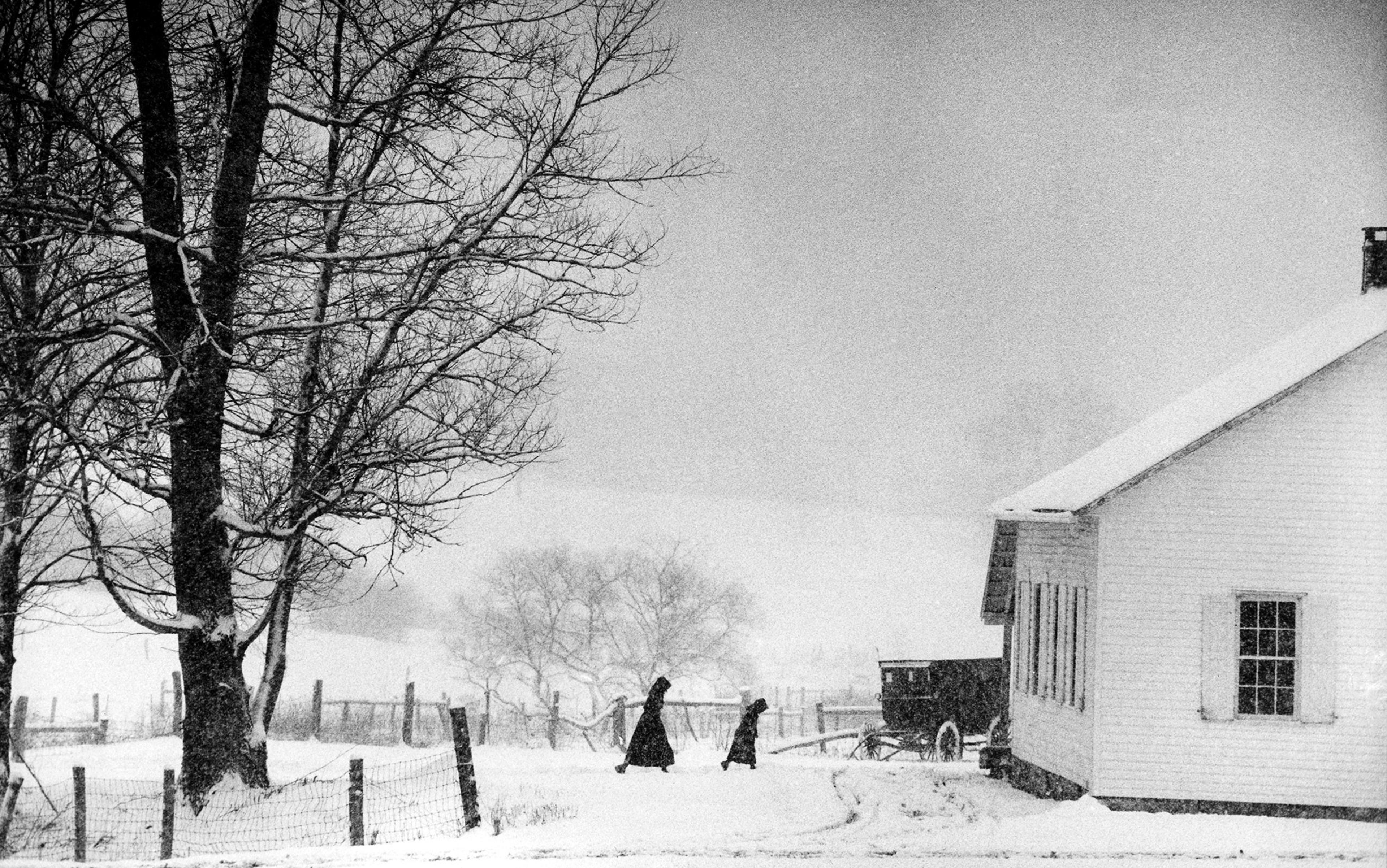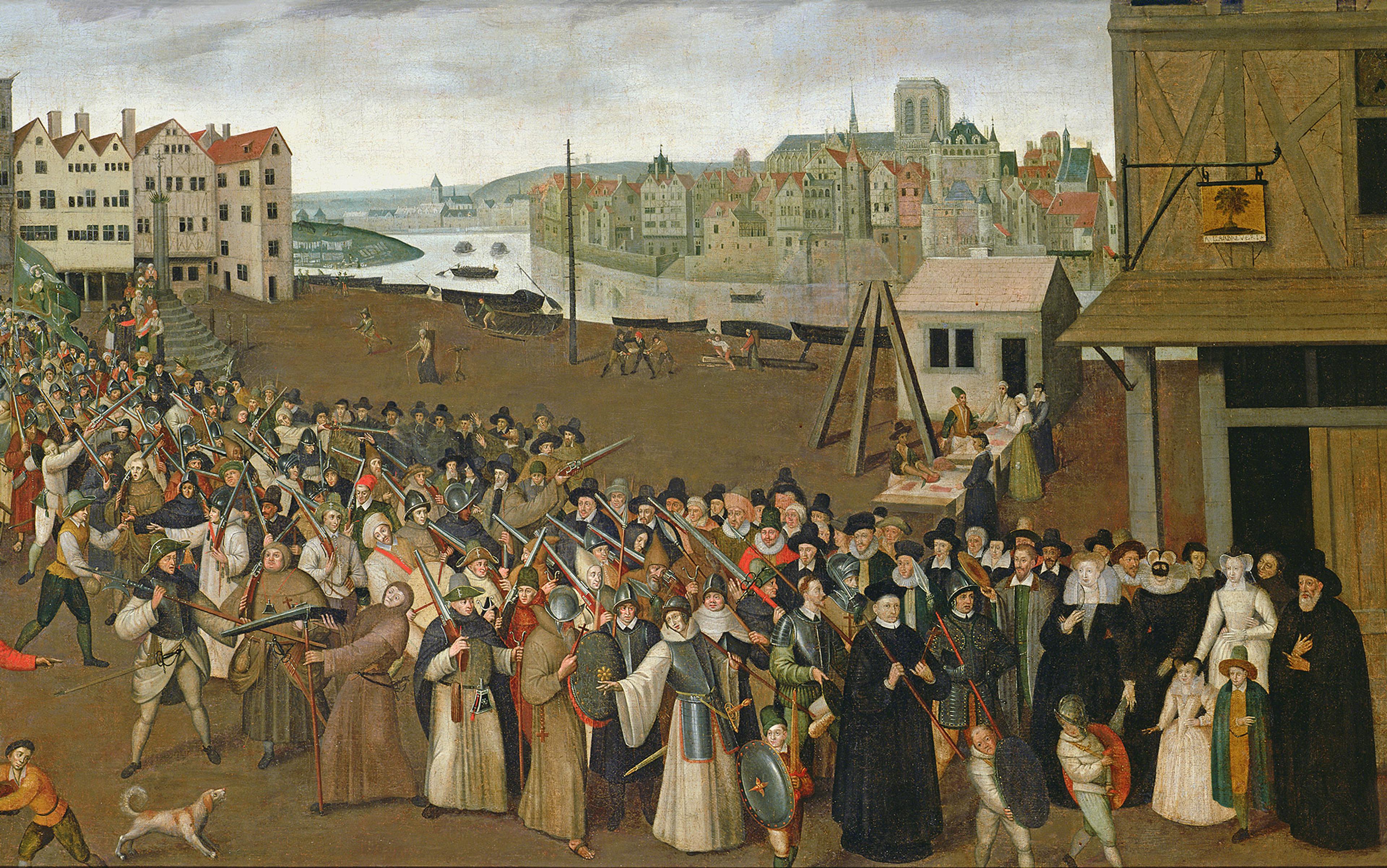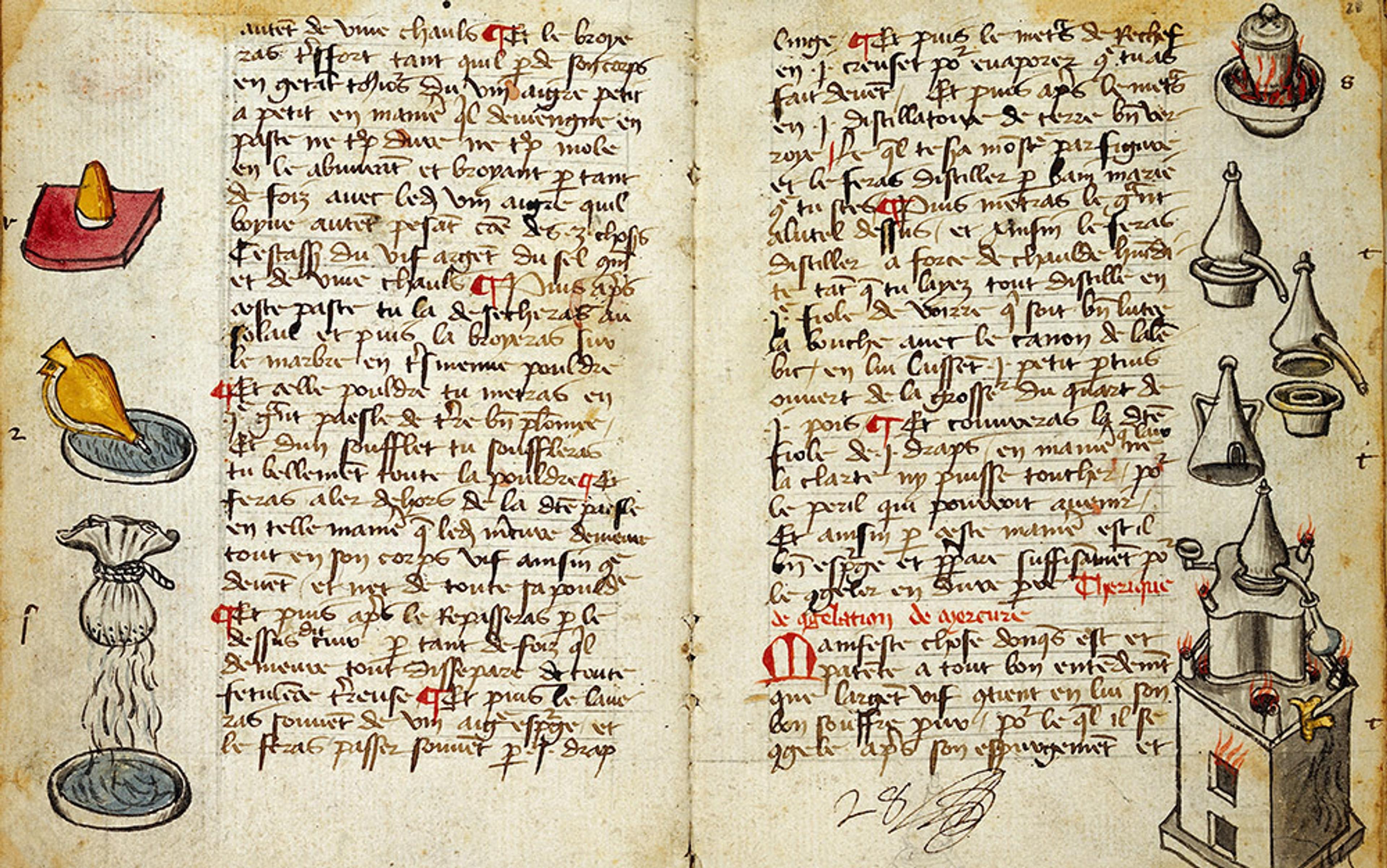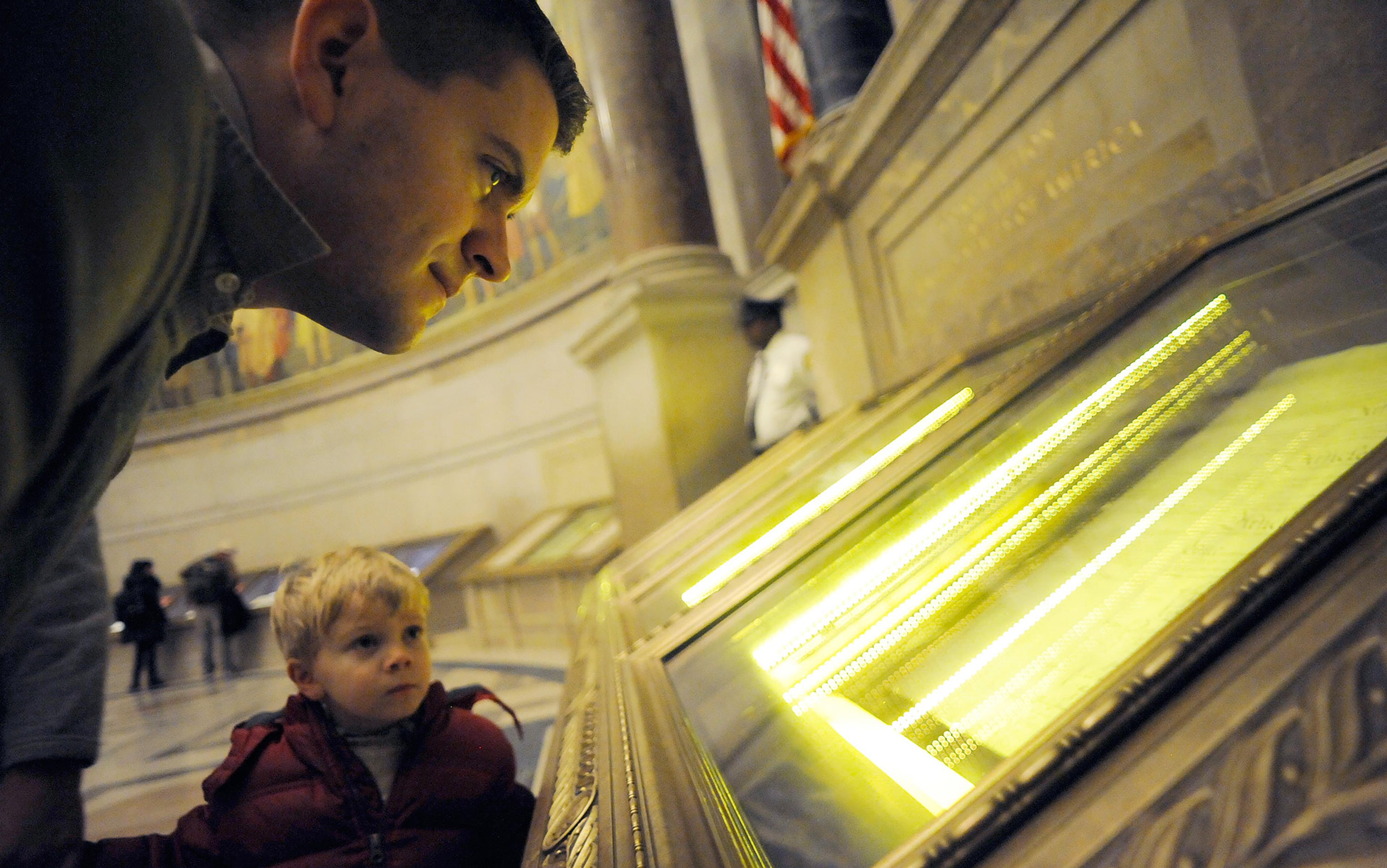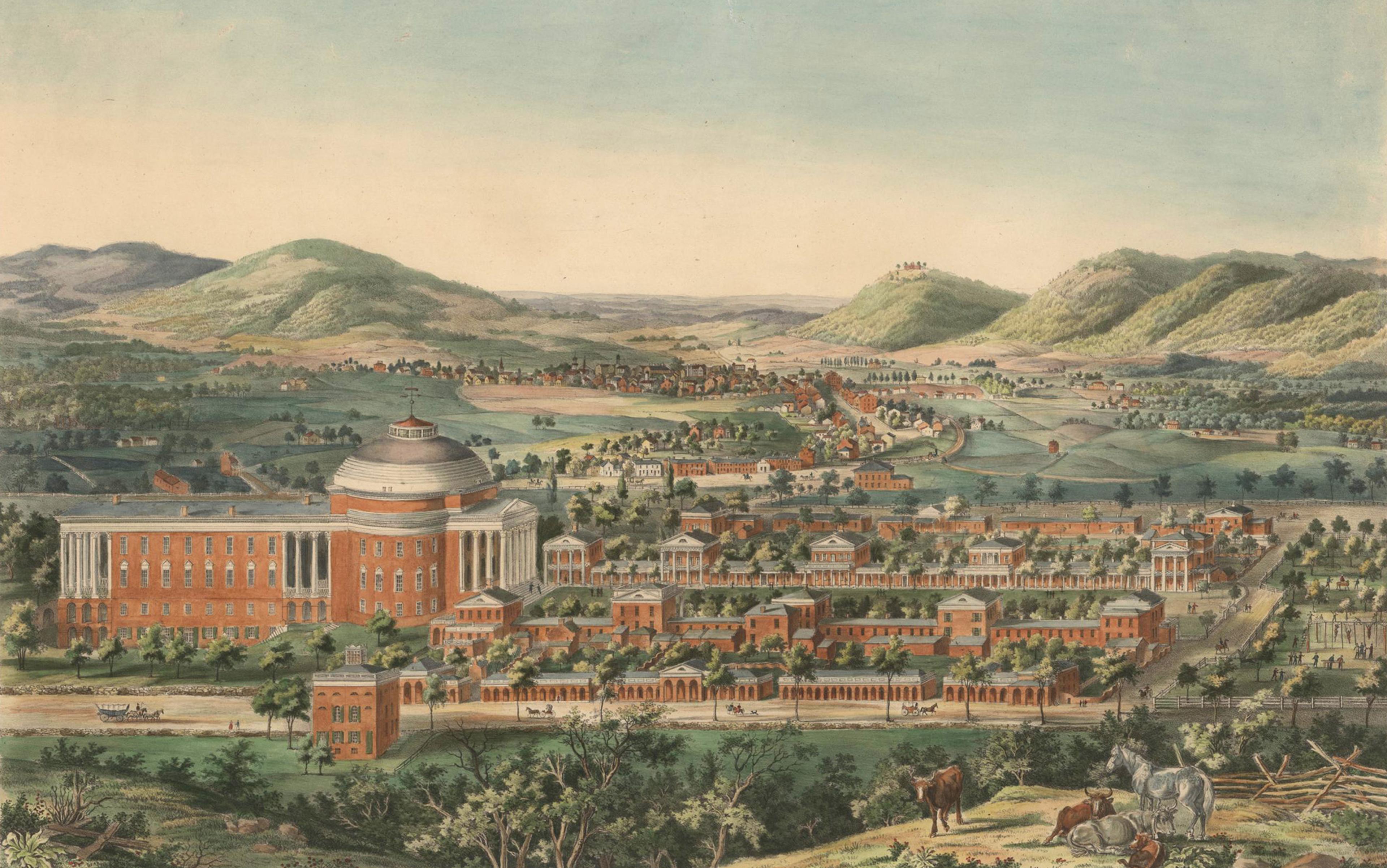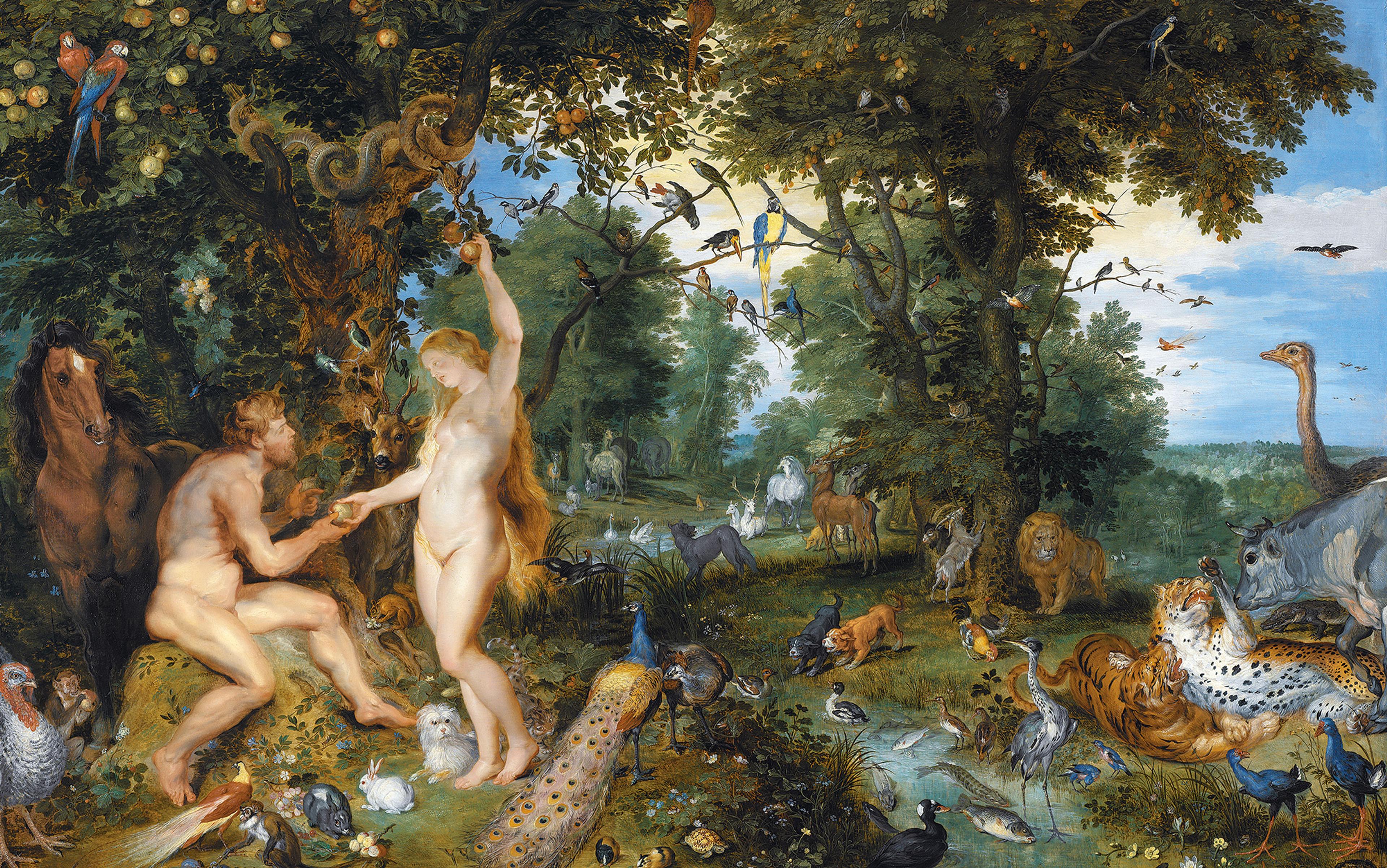In the beginning was the thing, and the thing was against God. So might begin the gospel of American secularism. The sudden flourish of secularism at the time of the United States’ foundation is incongruous, a rogue wave of rationality in a centuries-long sea of Protestant evangelising, sectarianism and God-talk. But it is undeniable. In 1788, with the adoption of its Constitution, the United States became the first modern republic founded on a legal separation of church and state. In a country that holds sacred the intentions of its revolutionary-era founders, those founders’ secular ambitions are clear. Thomas Jefferson wrote a book, The Life and Morals of Jesus of Nazareth, to try to prove that Jesus was not Christ, that the man was not the son of God. Around the world, his pithy expression ‘a wall of separation between church and state’ continues to represent a particular secular ideal of separating religious and political power.
James Madison, the primary author of the US Constitution, was an even more rigorous and consistent, if less poetic, secularist. On grounds of what he called ‘pure religious freedom’, Madison opposed military and congressional chaplains, believing that they amounted to government sponsorship of religion. Every step short of this ‘pure religious freedom’, he wrote, would ‘leave crevices at least thro’ which bigotry may introduce persecution; a monster… feeding & thriving on its own venom’.
So, in brief, what went wrong? How did the country founded by visionary secularists, and that made historic advances in both religious freedom and the separation of religious and political powers, nonetheless become the world’s most religious political democracy? Understanding secularism better helps to answer the question. Secularism is not one simple thing; it has distinct theological, philosophical and political lives. Its theological and philosophical versions are formed from simple, if explosive, ideas. In its political guise, ideas are less important than institutions, and it is on the shoals of institution-building that American secularism wrecked.
In theological terms, secularism is an Anglo-Protestant heresy that arose on the periphery of the 18th-century British Empire. In the past two centuries, it has developed offshoots in Catholicism and Islam, and genealogies in these and other faiths have been produced, but the influence of secularism is due in good part to the rise of US power in the modern world.
Prior to 18th-century Anglo-America – specifically revolutionary-era Virginia – no other modern society had sought to separate law, politics, social life and civic institutions from the divine. Such separation is antithetical to Catholicism, in which the truth and the path to salvation are found within the Church and its Magisterium. The Magisterium – literally the ‘offices’ – holds all the teachings and doctrine and history of the Church. English translators often render the Arabic din as ‘religion’, but it really means a way of life, including law, politics, institutions and more. The same is true of the Sanskrit dharma or ‘way’. It was, simply, only Protestants who systematised the idea of religion as a matter separable from the rest of life, a ‘private’ matter, in the well-known secularist formulation.
Because of secularism’s Protestant origins, its history must include the thought of Martin Luther. He argued that man needed no institution, no hierarchy of learned clerics, to broach God. Luther insisted that man could, with the Bible alone, arrive at salvation – could, as Baptists in the American South say, ‘get right with God’. From this insistence, radical implications unfolded. As the Catholic Church immediately recognised, Luther’s ideas did not just defy established religious teachings. They made religious institutions profane, rendering the experience of the sacred a private matter. They elevated private judgment as equal to or above that of the high and learned, and threw religion and religious experience beyond the reach of the state and society. It marked the creation of the modern sovereign individual.
Of course, Luther himself was anything but a secularist. For a start, his motive was to protect religion from politics, not politics from religion. As far as Luther was concerned, faith was the prime realm, to be made safe from the pollutant of worldly power. Second, Luther’s championing of the individual conscience had nothing to do with any kind of equality. The 19th-century Methodist saying ‘Methodism hates democracy as much as it hates sin’ spoke from a spirit closer to that of Protestantism’s founder, who never questioned that social status would be inherited, and that it was the lot of most to serve and suffer. Ideas of political equality born in the Age of Revolution were inconceivable to the founder of Protestantism. He would have found the relatively modest revolutionary-era American ideas about equality not just absurd but criminal, heretical.
Nonetheless, in the Age of Revolution, when America’s Virginia planters embraced the sovereignty of the individual in the name of religious freedom, they were clearly following in the footsteps of Luther. Catholicism, Islam or Judaism presented no similar path to the sovereign individual. Jefferson’s Virginia Statute for Religious Freedom (1786) legislated that people could hold their own religious views, whatever they might be, in the name of freedom. Following its passage, the usually cautious Madison wrote exultantly to Jefferson that they had ‘in this country extinguished forever the ambitious hope of making laws for the human mind’.
‘It does me no injury for my neighbour to say there are 20 gods, or no god. It neither picks my pocket nor breaks my leg’
Jefferson concurred that the achievement was historic. His reply also made clear who had been history’s great enemies of freedom: ‘Kings, priests, & nobles’ had for centuries conspired to keep man in ignorant subordination. It was, he wrote, Virginia’s great honour ‘to have produced the first legislature who had the courage to declare that the reason of man may be trusted with the formation of his opinions’. Jefferson felt the honour was also his, as he chose to have his authorship of the statute inscribed on his tombstone.
In the context of early modern political philosophy, to state that the reason of man could be trusted with the formation of his opinions was another way of stating the radical content of ‘all men are created equal’. The famous phrase did not mean that men possessed equal physical or intellectual capacities. It meant that all men could reason and were capable of acting as responsible and accountable moral agents. There is a clear intellectual link with Luther’s valuation of individual judgment.
For Luther, however, the implications of the sovereign individual were narrowly and entirely theological, rather than social or political. Princes would always be princes; peasants were to perpetually remain peasants. Luther’s sovereign individual simply had no social or political implications. By contrast, American religious freedom, as it took shape in Virginia during the Age of Revolution, contained little differences that made big differences. The Virginia Statute of Religious Freedom granted broad, principled protections for freedom of thought. It granted them to everyone, including those without theological qualification or learning.
Luther was an erudite Augustinian monk. He could envision theological debate only among the tiny number of similarly learned. Jefferson captured the extent of the Virginia Statute when he said: ‘It does me no injury for my neighbour to say there are 20 gods, or no god. It neither picks my pocket nor breaks my leg.’ Broad principled protection of religious belief was, in fact, far more consequential than Jefferson’s quote wants one to conclude. Beliefs tend to lead to actions; and it is actions, not beliefs, that cause injury. Historic as it was, Jefferson’s Virginia Statute for Religious Freedom grants no protections to actions taken on the basis of religious beliefs, only to the quiescent holding of private beliefs. The idea that belief and action, faith and life, can be so easily separated is central to the secular heresy.
The Virginians’ goals were in a real sense the opposite of Luther’s. They thought they were protecting the nation by separating politics from religion, protecting political society from the poison of religious passions. From a theological perspective, their secularism was a heresy. It diminished the role of the established churches. It separated religion from the world and made it private, and this privatising imperative of secularism is one of its great victories, albeit an incomplete one. The devout tend to conceive of God or Jesus or Allah or the Quran or the Bible as incomparable, unique authorities. They interpret the secular obligation to render religion a private matter as the impious or heretical telling them that some of their sacred duties are inherently illegitimate.
While it is a matter of history that secularism was in origin an Anglo-Protestant heresy, it is also true that America’s 18th-century secularists were not themselves moved by theological concerns. Rather, philosophy drove them, and their goals were thoroughly political. The simplest way to grasp the underlying philosophical idea of the secular is to understand that its original antonym is not religious, but divine. That is, secular refers to all things that are not the prerogative of the divine, of God, but are in the world and ‘in time’. God is not in time, or worldly, because God and the City of God are eternal. It is the worldly, the City of Man, that changes.
The shadow of this philosophical meaning of secular as worldly is evident in the Catholic notion of secular law – or the law of the world, of trusts and land and inheritances, with which the Church must be involved. Secular law stands in contrast to, and beneath, the laws of God, that is to say, beneath theology, which is concerned with the divine and the eternal.
Natural history has replaced the supernatural creation story. Geology – not theology – explains the features of the Earth
The one time Jefferson used the term ‘secular’, in July 1788, it was in this philosophical sense. Writing in excitement to a friend about the work of Pierre-Simon de Laplace, Jefferson wrote that the French mathematician and astronomer had ‘discovered that the secular acceleration and retardation of the Moon’s motion is occasioned by the action of the Sun’. Laplace had demonstrated that the eccentricities of planetary orbits were further proof of (not a deviation from) Isaac Newton’s theory of gravity. These eccentricities had led Newton to speculate that occasional divine intervention kept the solar system in orbital equilibrium. Laplace’s findings removed the notion of an active God from celestial mechanics. The Moon’s changing speeds were a result not of the hand of God, but of gravitational forces, expressible in mathematics and discoverable by men.
Economists and statisticians still use the term ‘secular’ in the same sense as Jefferson’s ‘secular acceleration and retardation’. It means, essentially, change over time. For 18th-century intellectuals the question was simple: was God active in the world? To Jefferson, Laplace’s discovery amounted to the heavens themselves attesting that God did not even intervene in the cosmos. This caused Jefferson much excitement both because of the great authority of science for Enlightenment thinkers, and for its political implications. Jefferson brought this core philosophical idea of the secular from the cosmos down to Earth in his Notes on the State of Virginia (1785). Describing the origin of the Blue Ridge Mountains and the Shenandoah Valley, he gave a geological explanation meant as a direct challenge to the Christian account of creation.
Anyone looking at the Blue Ridge Mountains, wrote Jefferson, could see that ‘this Earth has been created in time, that the mountains were formed first, that the rivers began to flow afterwards, that in this place particularly they have been dammed up by the Blue ridge of the mountains’. Simple examination of the topography, he continued, revealed how an ocean had once filled the valley then torn down the mountain. Likewise, simple examination of the rocks attested to their ‘avulsion from their beds by the most powerful agents of nature’. The phrases ‘this Earth has been created in time’ and ‘the most powerful agents of nature’ were not subtle code phrases. Natural history has replaced the supernatural creation story. Laplace’s physics explains the working of the cosmos, and geology – not theology – explains the features of the Earth.
For Enlightenment thinkers, the authority of science was such that these findings in physics and geology carried direct political consequences. If physics made the cosmos, and geology the Earth, that left men to make political society. The opening of The Declaration of Independence (1776) – ‘When in the course of human events…’ – captures this elevation of human history and authority over theology and divine authority. The events are human events. Since God had not authorised political obligations, people could choose to dissolve and remake them. That is why the same line of the Declaration goes on to say that sometimes in history ‘it becomes necessary for one people to dissolve the political bands which have connected them with another’. By contrast, one cannot dissolve divine obligations, they are made by God and are eternal.
It is not so difficult to understand the trajectory that led from the original Protestant championing of the sovereign individual to the heresy of 18th-century secularism extending that right of individual conscience to the masses. Nor is it so difficult to see that philosophical secularism provides strong grounds to separate the political and the religious into different spheres. But when it comes to secularisation itself – that is, the building of institutions to cultivate secular ideals deeply into the society – that’s when things get difficult.
Political life is where American secularism ran into a wall: the simple problem was its unpopularity. This unpopularity is one reason why American secularism remains clouded in some obscurity. Typically, big political ideas come into the world with names and words: they have champions and proponents, usually in writing. The Declaration of Independence announced US national independence, and a new theory of sovereignty, to the world. It soon entered world political literature. The Federalist Papers detail elaborate justifications for US constitutionalism. When big political ideas are born, just as in the birth announcement of a royal heir, the theatrical public statement, as weighty as possible, aims to impart legitimacy. Sometimes, the names arrive shortly thereafter, but come screaming: Marx and Engels’s Communist Manifesto (1848), for example. But there was no statement detailing secularism, no birth announcement, no manifesto.
In history, these are somewhat strange circumstances. A revolution leads to a historic achievement, but the beginnings and parameters of that achievement, even its moderately specific origins, remain murky, actually unstated. No one stepped up to offer a theory of the concept, or a formal statement of its principles. No one used the word. The thing itself was not even, on principled grounds, popular. But private communications between Madison, Jefferson and their allies in the effort to push secularising measures through the Virginia legislature in the mid-1780s reveal a plan that never came to be, a plan fully cognizant of the fact that a secular society would depend on secularising institutions.
The separation of church and state was not just an idea. It was a political act, in fact a very difficult political act. In revolutionary-era Virginia, the Anglican Church’s support for Britain in the War of Independence had left it weakened. Where it had supported 91 clergy before the war, following the Peace of Paris in 1783 only 28 Anglican clergy remained, in a population of approximately 690,000 in Virginia. Still, most people expected that the Anglican Church would remain Virginia’s state church, and that Virginia would continue to recognise Christianity. Just before becoming governor, Patrick Henry had prepared a bill calling upon the state of Virginia to legally recognise Christianity as the one ‘true religion’ by, among other means, a mandatory tithe to be paid to the government by each citizen. The bill also called for the state of Virginia officially to recognise that heaven and hell exist, that the Old and New Testaments were of divine origin, and that the Christian God be publicly worshipped. John Marshall, George Washington and other major figures in Virginia politics supported Henry’s bill.
However, a procedural oversight on Henry’s part delayed voting on the bill, and Madison moved to action. Both Jefferson and Madison were deeply opposed to a state church, or to any state recognition of religion. They also knew that their views against religion were unpopular and had no chance of prevailing on principle. Instead, Madison set out to terrify Virginia’s Presbyterians, Baptists and other rival sects into fearing that the state church would be an oppressive Anglican one. To this end, he wrote a broadside: the Memorial and Remonstrance Against Religious Assessments (1785). The Memorial succeeded, since most Virginia Christians wanted their own church to be the state church, and if not theirs then nobody else’s.
‘The mutual hatred of these sects has been much inflamed,’ Madison wrote to Thomas Jefferson in 1785, and ‘I am far from being sorry for it.’ Virginia’s disestablishment, or separation of church and state, came to be the model for national separation. But it was made possible only by a combination of parliamentary legerdemain and elite manipulation of sectarian hatred.
This first separation of church and state was, then, a purely negative measure. It was the governing equivalent of clearing a forest to build. It destroyed what secularists saw as unnatural public privilege for a corrupt institution holding vested interests in superstition and tyranny. To create a secular society, however, destruction was not enough. Positive measures must follow and the churches must be replaced, particularly in their social functions.
No one described this necessity better than Jean-Paul Rabaut, the architect of the French state education system. ‘The secret was well known to the priests,’ he said in 1791. ‘They took hold of man at birth, grasped him again in childhood, adolescence and adulthood, when he married and had children, in his moments of grief and remorse, in the sanctum of his conscience.. in sickness and in death.’ Public schools ought to ‘do in the name of truth and freedom’ what the church so ‘often did in the name of error and slavery’.
Quite simply, a secular society required the founding of public schools and libraries, served by qualified teachers. Scientific and philosophical education was necessary to replace the moral influence, social programmes and historical teachings of the churches. In the 1785–86 session of the Virginia Assembly, Jefferson proposed three bills intended to establish institutions to secularise Virginia society. The bills proposed to create a non-religious school system, organised by county, and providing free education through the elementary grades; to sever the College of William and Mary’s church ties, and make it a republican college; and to establish a public library system built around science, philosophy and civics. An ally of Jefferson’s described the ambition of the measures. They ‘propose a simple and beautiful scheme, whereby science… would have been “carried to every man’s door”.’
there was a reason that the Bible was the only book slave-owners allowed to circulate freely on plantations
America’s leading 18th-century secularists understood that religion brought a world of ideas – and sometimes a whole social life – as well as political opportunity to Virginians, rich and poor. Very few people would turn their backs on all of this simply out of political principle. The secularists would have to offer real alternatives: schools, libraries, ideas, stories, forms of community, an active and ongoing presence in the lives of Virginians. Jefferson’s Notes on the State of Virginia described a plan by which a system of public schools would replace sacred history with profane history. The schools were to be free, for everyone, for three years. Examinations would find the best students among the poor, and these students could receive more schooling, paid for by the state, through the College of William and Mary. ‘By this means,’ Jefferson wrote, ‘the best geniuses will be raked from the rubbish.’
The object was to provide an education suitable for people who must function as citizens. ‘Instead of putting the Bible and Testament into the hands of the children, at an age when their judgments are not sufficiently matured,’ he noted, children should instead receive educations in ‘Grecian, Roman, European, and American history’, Latin, Greek, mathematics, and the sciences. No law, he wrote, was ‘more important, none more legitimate’ than one to provide secular arts and sciences education for the people at large. It would, he wrote, make them effective ‘guardians of their own liberty’.
Churches would have been the big losers of this ‘systematical plan’, but their opposition was not the only reason, nor even the main reason, it failed to materialise. The nature of Southern plantation society did not permit potential alternatives, such as state-run school systems and libraries, to planter authority. The great 19th-century American intellectual, and former slave, Frederick Douglass called literacy ‘the pathway from slavery to freedom’. In his autobiography, he recalled his master admonishing his mistress for teaching him the alphabet: ‘If you teach that nigger how to read, there would be no keeping him. It would forever unfit him to be a slave.’
Planter authority could not be compromised for the sake of the visions of a few eccentric deists, however prominent. At the same time, there was a reason that the Bible was the only book slave-owners allowed to circulate freely on plantations. ‘Slaves, obey your earthly masters in fear and trembling, in singleness of heart, as you obey Christ,’ states Ephesians, one of many places where the scriptures authorise slavery, and counsel submissive obedience. Slavery was simply more important to US nation-building than secularism.
In hindsight, American secularism has experienced both clear victories and stark defeats. The Anglo-Protestant heresy of making all members of the political community into Luther’s sovereign individuals has become something of an American orthodoxy. Who is more consistently certain that the sanctity of their conscience has vouchsafed God-given rights, whatever they decide those rights might be, than Americans? However, American secularists have generally failed at building institutions that rival the special breadth and depth of religion’s involvement in people’s lives.
For their part, acutely religious Americans have understood that public education is the enemy: that it is – and must be – secularising. For the sciences and humanities offer worlds, and explanations, that the scriptures do not, and an education in the latter in particular seems to be a fairly reliable inoculation against authoritarian tendencies of religion. Indeed, historically, the purpose of public education in modern nation-states is to make people citizens, not to make them better Christians or Jews or Muslims.
Finally, it is important to emphasise that the varieties of the secular are not all equal. Yes, secularism emerged out of Protestant theology, and philosophy transformed it from a heresy into a tenet of modern politics. But to its 18th-century proponents, it was at root a political project. A secular society, they were certain, would be a more enlightened, peaceful and just society. American secularism has not fulfilled those aspects of its promise. It never even secularised American political life. Whether it was a mistake in principle, or the problem is that secularists did not go far enough, is open to debate, but it is worth remembering that American secularism was always meant to be a means, not an end.

